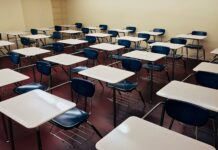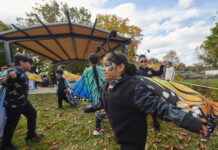Good study practices solidly ingrained into habits can help students start the school year off on the right foot. Here are tips for students of all ages — and parents, too.
Katie Baker, a mom and 2nd grade teacher at Bunker Hill Elementary in Middletown, DE, recommends reaching out to your child’s teacher early in the school year to establish a relationship.
“Families play a crucial role in their child’s education and I think that this partnership is imperative,” says Baker. She suggests sending an email or note to the teacher introducing yourself and offering to work with the teacher as a team.
Help young students prioritize and break assignments into smaller, more manageable pieces.
“Elementary students should do this with a responsible adult until they can prioritize their work on their own,” says Wendy Turner, 2017 Delaware Teacher of the Year, a teacher at Mt. Pleasant Elementary School in Wilmington.
Ashlynne Thomson, assistant director of college counseling at Moorestown (NJ) Friends School, believes that because assignments are often given electronically, breaking down assignments is an often-overlooked strategy. “Note when each piece is ‘due’ in a planner, which can be electronic,” she recommends.
For nightly homework, elementary school teachers recommend finding a calm and organized workspace.
Emily Gojman, a 4th grade teacher at Moorestown Friends, recommends keeping supplies handy. “Use pencil cases, a shower caddy or a desk organizer to keep supplies organized,” she suggests. Take breaks every 15 minutes to get the wiggles out. She recommends getting up, stretching, walking around and even dancing.
 Do homework in a quiet place with no distractions, recommends Dr. Laura Blankenship, dean of academic affairs at the Baldwin School in Bryn Mawr, PA. “Practice and study require focused attention, so shut down the social media sites and turn off the phone,” she says.
Do homework in a quiet place with no distractions, recommends Dr. Laura Blankenship, dean of academic affairs at the Baldwin School in Bryn Mawr, PA. “Practice and study require focused attention, so shut down the social media sites and turn off the phone,” she says.
Moorestown’s Lower School Librarian Deborah Alterman recommends turning on subtitles when children are watching TV. For early readers, this can help boost reading skills, such as phonics, word recognition and fluency. Older students can have fun turning on subtitles during live events to catch typos and mistakes.
“Studying should involve something other than staring at words,” says Margaret Somerville, a middle school Latin teacher at Friends’ Central School in Wynnewood, PA. Simply staring at words can allow the mind to wander. Instead, she recommends saying key names and phrases aloud, typing them out, or using online tools to make maps, charts or interactive games. “All of these encourage processing information instead of staring at it,” she says.
Chris Reyna, a social studies teacher at Bayard Rustin High School in West Chester, PA, recommends that students use the Positive Psychology method when reviewing for a test. Students write down new facts and skills learned, and things they are thankful for. “It builds confidence and might point out areas for further review,” says Reyna.
For high school subjects heavy in math, such as chemistry and physics, teacher Kevin Orlando says they are best understood through repetition. “When reviewing for a test, redo old examples and attempt new ones. Simply glancing over previously completed problems will not uncover your uncertainties,” says the chemistry teacher from B. Reed Henderson High School in West Chester, PA.
Blankenship notes that getting started studying is often the hardest part. “Try to envision exactly what you want to get done when you sit down to study,” she suggests. Then write it out as a to-do or goal list. “You’re more likely to be able to start quickly if you can visualize what you want to accomplish.”
Suzanne Koup-Larsen is a contributing writer to MetroKids.






